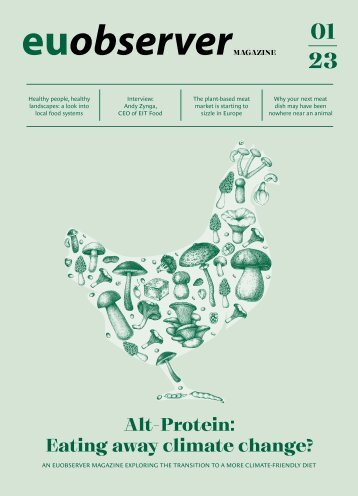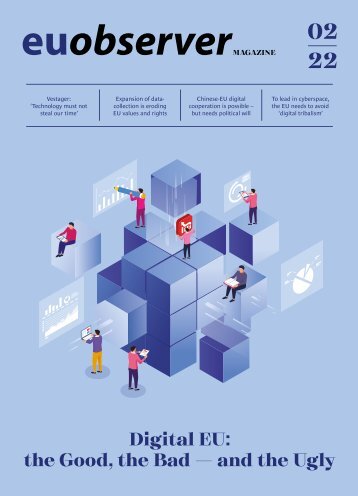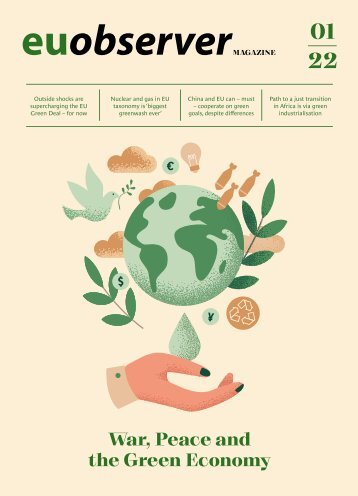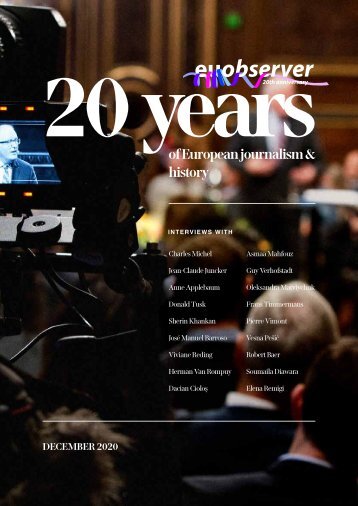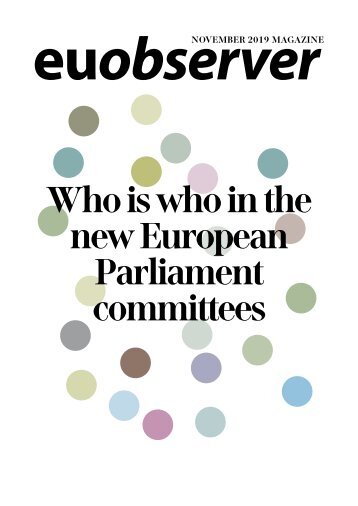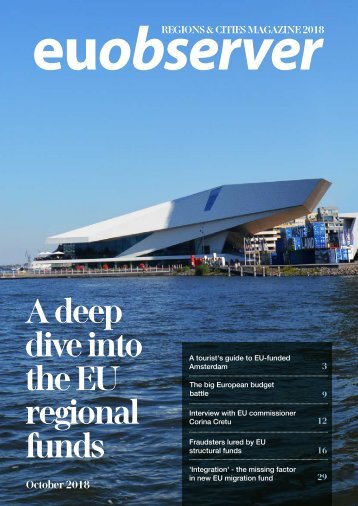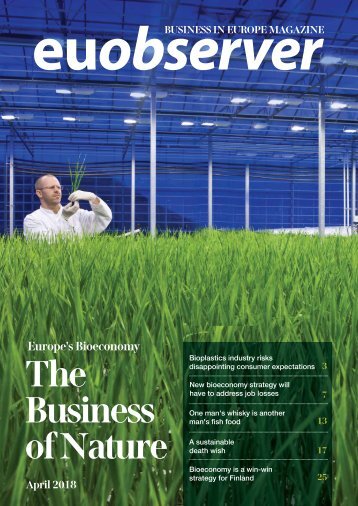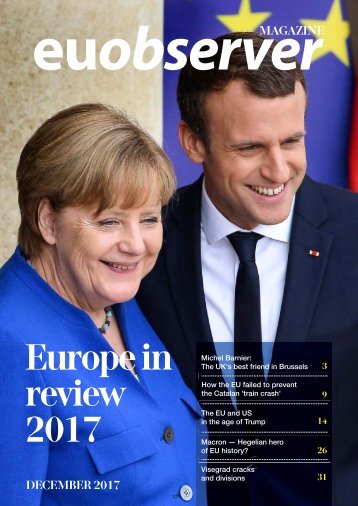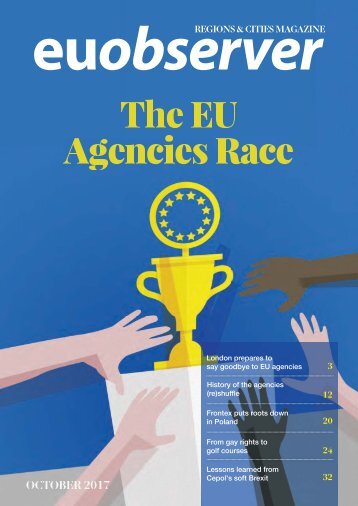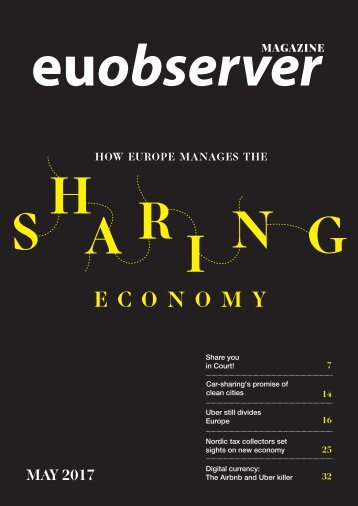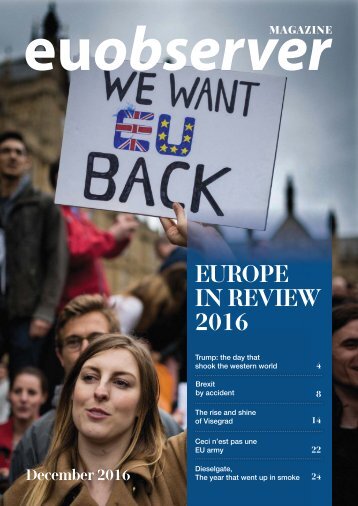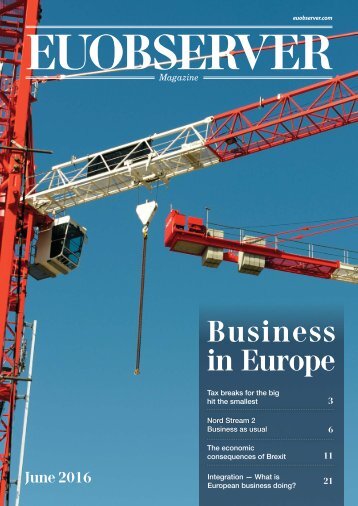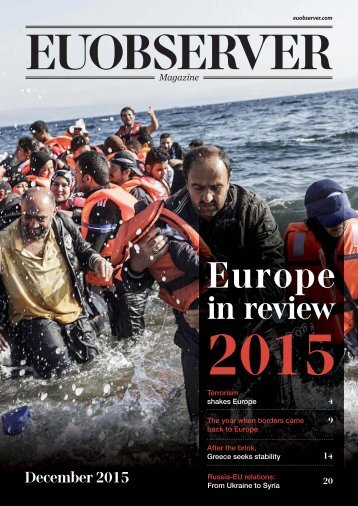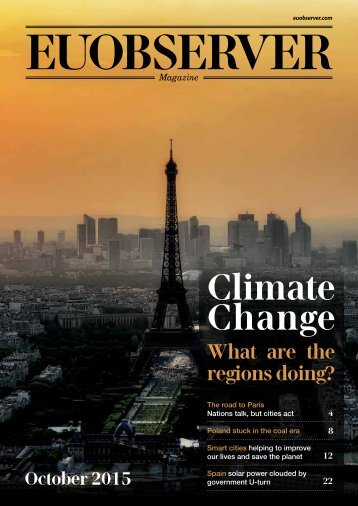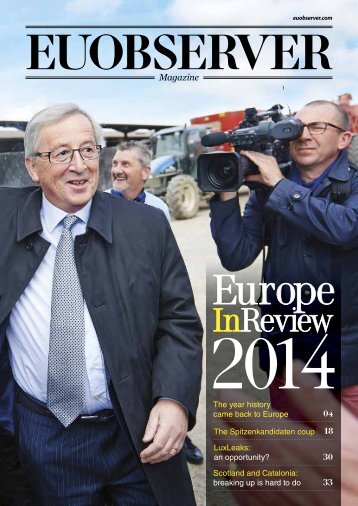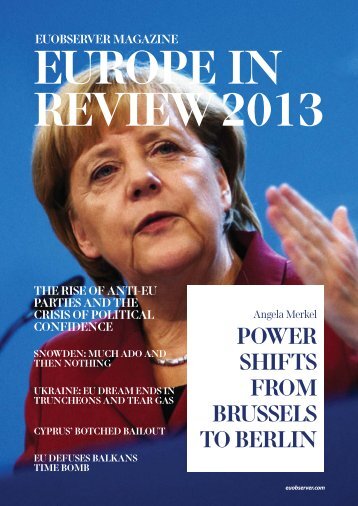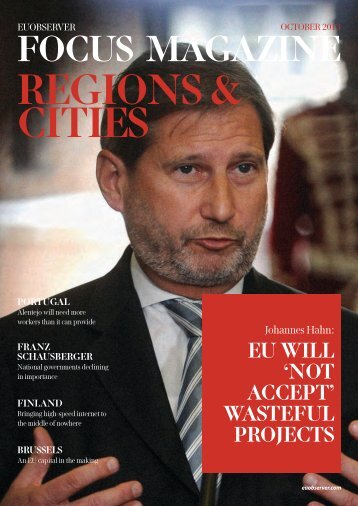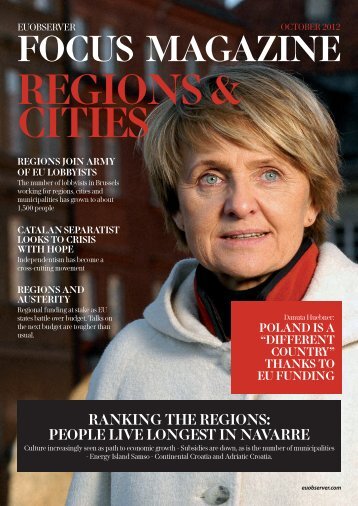20 years of European journalism & history
- Text
- Fusion
- Applebaum
- Leaders
- Baer
- Economic
- Vimont
- Treaty
- Countries
- Euobserver
- European
Barroso: An insider's
Barroso: An insider's the year 2007 guide to the Lisbon Treaty Jose Manuel Barroso was European Commission president before and after the Lisbon Treaty entered into force in December 2009. He discusses how it impacted his work and the broader implications for an expanding European Union. By Nikolaj Nielsen When Gordon Brown as UK prime minister signed the Lisbon Treaty in December 2007, he did so in a quiet room with only a handful of other people present. Among them was Jose Manuel Barroso, who as European Commission president at the time, had helped usher in the new treaty which overhauled the European Union and its institutions. Barroso said Brown deliberately arrived late to eschew the official signing ceremony and group photo with the other heads of state and government at Lisbon's 15thcentury Jerónimos Monastery. 'At the end of the day Europe is all of us, Europe is just not Brussels,' said Jose Manuel Barroso Photo: European Commission "In fact, he signed very discreetly the treaty with me and one or two other witnesses and without the media. For me the fact that Gordon Brown, someone who may be considered pro-European was not ready to sign publicly the Lisbon Treaty, that is a clear, clear signal of what could come later," said Barroso. the 2016 referendum that has since led to years of protracted and painstaking negotiations between London and Brussels. Barroso first became European Commission president in 2004, the same year 10 states joined the union. The Lisbon Treaty forms the constitutional basis of the European Union, amending two other treaties to meld cross-border rights and freedoms. It entered into force at the end of 2009. Among the novelties it introduced at the institutional level was a more powerful European Parliament, a new European Commission foreign policy branch, and a new European Council presidency. But it also included a new option for a member state to leave - which the UK subsequently did, following He was then reappointed in 2009, allowing him to experience the impact of the Lisbon Treaty on the EU and its institutions first hand. The German EU presidency, in the lead up to the treaty's signing, had helped create a political momentum, following the Berlin declaration over the 2007 summer months. But negative referenda results in France and the Netherlands had initially threatened to derail it. Ireland was also at odds. 18 — EUOBSERVER ANNIVERSARY 2020
"I remember going there [Ireland] at least twice, engaging in debates with society and different groups. Frankly, one of the most difficult groups was, it is bizarre to say, but it was the meat producers and exporters," said Barroso. Barroso said Ireland was wary of having its beef industry compete with other huge exporters, like Brazil. That issue was eventually settled, with Dublin's decision to support the treaty a factor that weighed in on Poland. In his conversations with Poland's president at the time, the late Lech Kaczynski, Barroso said he saw a leader who was culturally conservative, but also very much someone who believed in an integrated European Union. "I remember speaking about the possibility of the European army, he said to me, 'if one day there is a European army, I would like Poland to be the first to contribute, to the first division', so someone who says this I don't consider anti-European at all," said Barroso. The Lisbon Treaty Photo: European Commission your commissioner a very secondary portfolio, but if you send a woman I can give her an important portfolio," said Barroso. Barroso then also appointed Ashton as the vicepresident of the European Commission, creating a dual role between the EU institutions. She then helped set up the new European External Action Service. As for signing off on the Lisbon Treaty itself, Barroso said Kaczynski was ready to support it, but did not want to appear to be putting undue pressure on a smaller country like Ireland. "If I want to be honest, there were some turf issues," said Barroso, noting not everyone at the commission was happy about delegating foreign affairs to another body. "And I asked him if he was ready to ratify the treaty because there was some delay and he said to me 'look, I am ready to do it today, if you tell me that Ireland does not see a problem'," said Barroso. Big EU states also wanted to keep Ashton close, and away from the commission, he said, noting some friction as well from the new European Council president. Ireland held a second referendum, backing the treaty, in October 2009. Poland's parliament then ratified it soon afterwards. "Once again being very honest, many people in the European Commission were looking at this position with suspicion," he said. The changes at the EU institutions were profound. Not everything went smoothly, as a turf war over foreign policy broke out between the European Commission and the European Council. Barroso had told Brown to send him a woman to take up the role of the EU's foreign policy chief, more formally known as the high-representative. Brown sent Catherine Ashton. "I wanted to have a more gender-balanced commission, I made with him the same kind of 'soft blackmail' I made with several prime ministers, telling them look if you send me a man I will give Some commission insiders saw themselves as the only institution that had a permanent fulltime position on EU matters - while the European Council president post was a two-and-a-half year appointment. Despite the teething problems, Barroso describes the EU foreign policy branch as a "silent revolution", given the current role of European embassies, missions and delegations around the world. "I think we have to be proud of the work done with the Lisbon Treaty," Barroso concluded. 19 — EUOBSERVER ANNIVERSARY 2020
- Page 1 and 2: 20 years of European journalism & h
- Page 3 and 4: From Milošević to freedom - and b
- Page 5 and 6: Sherin Khankan: 'We are the first m
- Page 7 and 8: Say hello to your new currency, the
- Page 9 and 10: with Shia-Muslim Iran and unleashed
- Page 11 and 12: Europeans, have experienced an unpr
- Page 13 and 14: ITER cryostat base lift off operati
- Page 15 and 16: The declaration of Laeken launched
- Page 17: Originally, the directive would hav
- Page 21 and 22: China and the EU signed the Geograp
- Page 23 and 24: Aerial view of EEAS building in Bru
- Page 25 and 26: dictatorships. In 2011, the Europea
- Page 27 and 28: eferendum - to be absent at the cel
- Page 29 and 30: the Ukraine: 'He told me he loved m
- Page 31 and 32: REFUGEE CRISIS - THE MALIAN the yea
- Page 33 and 34: In July, the EU Commission appointe
- Page 35 and 36: "Now, the US doesn't trade with Ira
- Page 37 and 38: Yet 2018 still managed to consolida
- Page 39 and 40: EU's Green Deal - a global 'gold st
- Page 41 and 42: EU the year 2020 solidarity tested
- Page 43 and 44: "Now, there is more political will
Inappropriate
Loading...
Mail this publication
Loading...
Embed
Loading...

